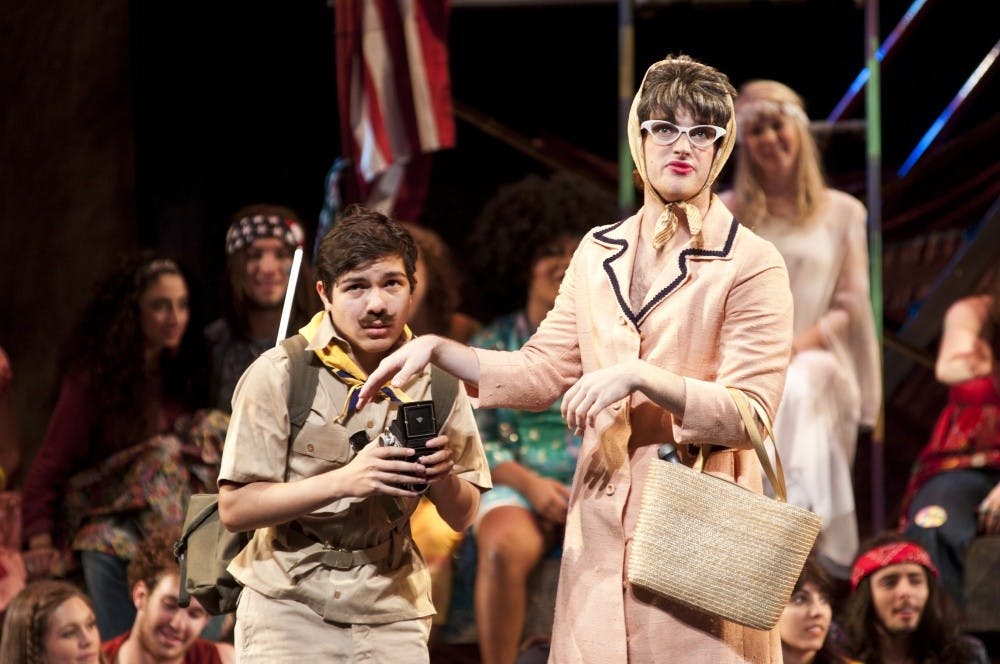How dare they try to end this beauty.
Such is the message sung by the cast of "Hair: The American Tribal Love-Rock Musical," which will complete its run Nov. 5 in McCrary Theatre. That's when the beauty of the live show will end, but its message will resonate long after the final curtain call.
"Hair" revolves around a tribe of hippies living in New York City, who spend their days actively protesting the Vietnam War. Conflict strikes the tribe when its leader, Claude, played by senior Matt Meigs, receives a draft card and faces an intense struggle with his identity. The tribe also fights back against many social injustices, among them racism, sexism and religious intolerance.
The heavy themes in "Hair" require the actors to be uninhibited from start to finish. They do this unfailingly, with a fearlessness present in every line, spoken or sung. The actors are not actors, but a deeply convincing tribe whose opposition of the war spreads from posters and signs to a symbolic shedding of clothing onstage.
Such commitment to the piece comes in all forms and is even shown in the characters' wardrobe. Costume designer Jack Smith, associate professor of performing arts, transformed the students into bona fide hippies, from their afros and bandanas to their bellbottom jeans.
The scenic design also contributes to a large part of the production's believability. The stage has temporarily become a New York City rooftop, complete with ladders and scaffolding. Here, the tribe displays a distinct feeling of safety and comfort, free to be themselves no matter who's watching.
This production is still undoubtedly risky, not because of its material, but because of a possible disconnect between the audience and that material. Many audience members are college-aged, and although there is a similarly controversial war going on right now, the social impact of the Vietnam War has the potential to be lost on those who did not live through it.
But the cast and crew of "Hair" try to bridge this gap as much as possible. Research and photos about the Vietnam War line the walls of the Center for the Arts, which the actors studied for the last several months in order to better understand the songs they are singing.
The audience also becomes part of the experience, as the actors interact with them before, during and after the show. Opening the door to McCrary Theatre is like stepping into an entirely different era, filled from the start with color and warmth.
The ability of the cast to make audience members believe in their tribe is what makes Elon's production of "Hair" so convincingly poignant. This is a group of men and women who are unafraid to express their beliefs, regardless of how many people agree with them.
Seniors Kennedy Caughell and Adam Kaplan, who play Sheila Franklin and George Berger, respectively, possess a vibrant passion that is shared by the entire tribe. Their energy is transcendent, continuing from the opening bars of "Aquarius" to the goosebump-inducing final number, "Let the Sunshine In."
The underlying messages in this production are transcendent, as well. Today's generation is burdened with many of the same issues as in the 1960s. "Hair," while endlessly positive, is also sobering and real, forcing the audience to take a closer look at the injustices facing society.


